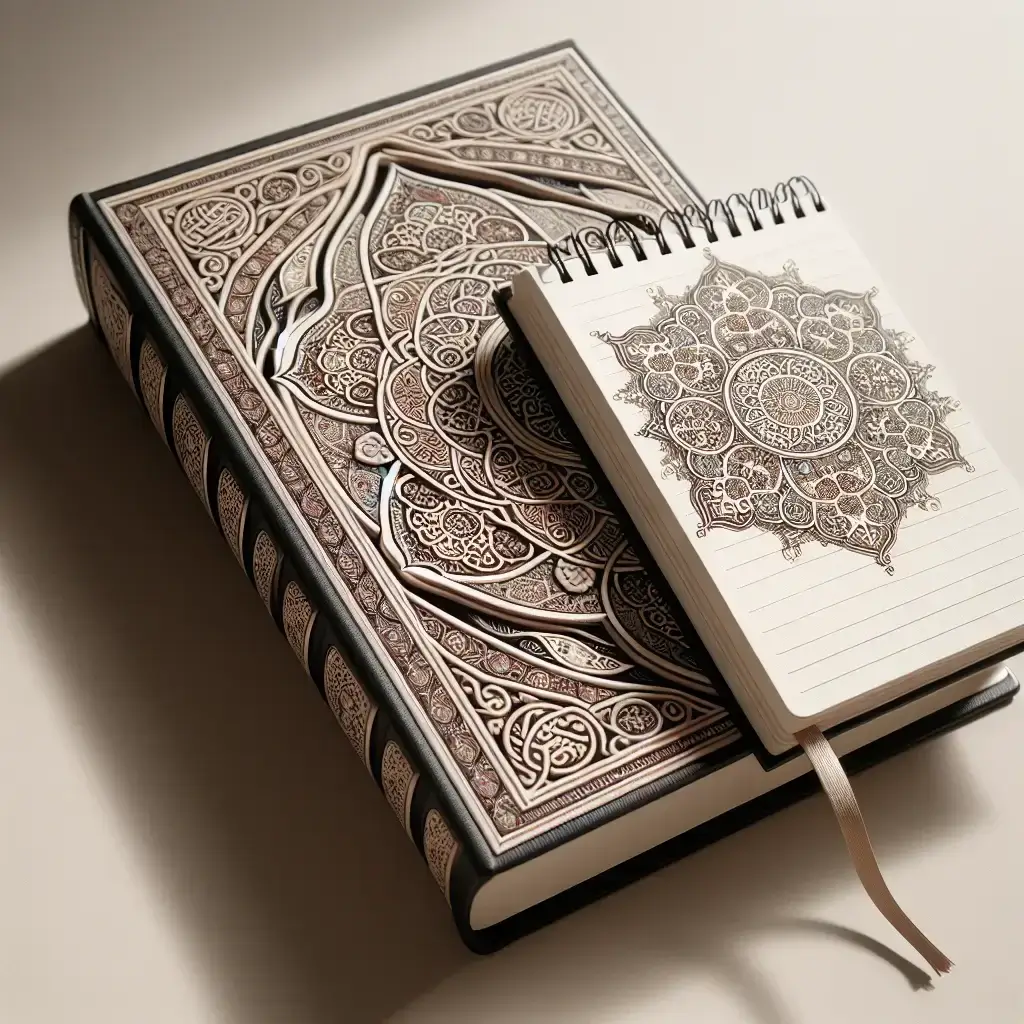The Ultimate Guide to Muslim Female Names: Meaning, Tradition, and Modern Trends

Choosing a name for your daughter is a journey filled with excitement, anticipation, and thoughtful consideration. In Islamic culture, names carry immense significance, reflecting faith, heritage, and aspirations for the future. This comprehensive guide delves into the beautiful world of Muslim female names, exploring their meanings, historical context, modern trends, and practical tips to help you find the perfect name for your little one.
The Profound Significance of Names in Islamic Culture
The act of naming holds a special place in Islamic tradition. Prophet Muhammad (PBUH) emphasized the importance of selecting good names with positive meanings, as they can influence a person’s character and destiny. The concept of ‘Ism al-Musamma’ further underscores this belief, suggesting a deep connection between a person’s name and their life path. Names are not merely labels; they are a reflection of identity, values, and hopes for the future.

Unveiling the Rich Tapestry of Muslim Female Names
Traditional Names:
- Quranic Names: Drawing inspiration from the holy book, names like Aisha (alive and well), Mariam (Mary), Fatima (captivating), and Hajar (the wife of Prophet Ibrahim) hold deep religious significance and timeless appeal. These names connect your daughter to the core of Islamic faith and its rich history.
- Names of Prophets’ Wives and Daughters: Honoring exemplary figures from Islamic history, names like Khadija (premature child, distinguished), Amina (trustworthy, faithful), Hafsa (lioness), and Zainab (fragrant flower) represent strength, virtue, and devotion. These names serve as a constant reminder of the powerful women who played vital roles in shaping Islamic history.
- Names Reflecting Virtues: Choosing names that embody desired qualities like Noor (light), Iman (faith), Rahma (mercy), Aaliyah (noble, exalted), and Sabira (patient) can inspire and guide your daughter throughout her life. These names act as a constant source of encouragement, reminding her of the values that are important to uphold.
Unique and Meaningful Names:
- Nature-Inspired Names: Connecting with the beauty of the natural world, names like Yasmin (jasmine), Zahra (flower), Rayhan (sweet basil), Jannat (garden, paradise), and Wardah (rose) evoke purity, freshness, and blessings. These names celebrate the wonders of creation and inspire a sense of connection with the natural world.
- Names with Symbolic Significance: Names like Salama (peace), Kamila (perfect), Safiya (pure, best friend), Amani (wishes, aspirations), and Inaya (care, concern) represent profound concepts and aspirations. These names carry deeper meanings that can guide your daughter’s life journey.
- Hidden Gems: Exploring lesser-known names like Naila (attainer, successor), Tahira (pure), Badriya (full moon, guidance), Asiya (the wife of Pharaoh, known for her piety), and Sumayyah (the first martyr in Islam) can uncover unique choices with deep historical and spiritual connections. These names offer a sense of individuality while still being rooted in Islamic heritage.
Embracing Modern Trends in Muslim Female Names
- Combination Names: Combining traditional names like Aisha and Noor to form Aishanoor or Fatima and Zahra to create Fatimazahra creates a unique and personalized option while honoring heritage. This trend allows for creativity while maintaining a connection to tradition.
- Influence of Other Languages: Embracing the diversity of the Islamic world, names from Turkish, Persian, and Urdu languages like Elif (slender and tall), Soraya (bright star), Mahira (skillful), Dilara (heart’s delight), and Gulbahar (spring flower) offer beautiful options with their own cultural significance. This reflects the interconnectedness of Muslim communities around the world.
- Balancing Modernity and Tradition: Choosing names like Zara or Sara that are both familiar and timeless while still maintaining a connection to Islamic roots. This approach caters to parents who seek a name that feels contemporary yet still honors their cultural heritage.

100 Beautiful Muslim Female Names with Meanings
| S.No. | Name | Meaning | Origin |
|---|---|---|---|
| 1 | Abla | More knowledgeable, wiser | Arabic |
| 2 | Afnan | Branches of a tree, abundance | Arabic |
| 3 | Alhena | A star in the constellation Gemini | Arabic |
| 4 | Alima | Learned, scholar | Arabic |
| 5 | Anahita | The Persian goddess of water and fertility | Persian |
| 6 | Anisa | Friendly, companionable | Arabic |
| 7 | Anjum | Stars, celestial bodies | Arabic |
| 8 | Arwa | Mountain goat, ibex | Arabic |
| 9 | Asrar | Secrets, mysteries | Arabic |
| 10 | Asiya | Pious, wife of Pharaoh | Arabic |
| 11 | Badr | Full moon | Arabic |
| 12 | Badriya | Full moon, guidance | Arabic |
| 13 | Bushra | Good news, glad tidings | Arabic |
| 14 | Dilara | Heart’s delight, beloved | Turkish |
| 15 | Dunya | World | Arabic |
| 16 | Durra | Pearl | Arabic |
| 17 | Elara | Bright, shining | Arabic |
| 18 | Elham | Inspiration, intuition | Arabic |
| 19 | Esraa | Night journey, spiritual journey | Arabic |
| 20 | Faatin | Captivating, charming | Arabic |
| 21 | Firdaus | Highest level of Paradise | Arabic |
| 22 | Gulbahar | Spring flower | Persian |
| 23 | Hanaan | Compassion, tenderness | Arabic |
| 24 | Huda | Guidance, right direction | Arabic |
| 25 | Inaya | Care, concern, solicitude | Arabic |
| 26 | Intisar | Triumph, victory | Arabic |
| 27 | Isra | Night journey | Arabic |
| 28 | Itidal | Balance, equilibrium | Arabic |
| 29 | Jadid | New, fresh, innovative | Arabic |
| 30 | Jannat | Garden, paradise | Arabic |
| 31 | Joud | Generosity, munificence | Arabic |
| 32 | Juwayria | Young woman, maiden | Arabic |
| 33 | Kalila | Dearly loved | Arabic |
| 34 | Kamaria | Like the moon | Arabic |
| 35 | Khadija | Premature child, respected | Arabic |
| 36 | Khayal | Imagination, thought | Arabic |
| 37 | Lamia | Shining, radiant | Arabic |
| 38 | Latifa | Gentle, kind | Arabic |
| 39 | Liyana | Softness, tenderness | Arabic |
| 40 | Lubna | Storax tree, known for its fragrance | Arabic |
| 41 | Maha | Wide-eyed, beautiful | Arabic |
| 42 | Mahra | Skillful, expert | Arabic |
| 43 | Mahtab | Moonlight | Persian |
| 44 | Malak | Angel | Arabic |
| 45 | Maram | Aspiration, goal | Arabic |
| 46 | Maysan | Star, shining brightly | Arabic |
| 47 | Misk | Musk, fragrance | Arabic |
| 48 | Nahla | Drink of water, first drink | Arabic |
| 49 | Naila | Attainer, successful | Arabic |
| 50 | Naima | Tranquility, peace of mind | Arabic |
| 51 | Nasreen | Wild rose | Persian |
| 52 | Nura | Light, illumination | Arabic |
| 53 | Pari | Fairy, angel | Persian |
| 54 | Qamar | Moon | Arabic |
| 55 | Rahima | Merciful, compassionate | Arabic |
| 56 | Rania | Gazelle, graceful | Arabic |
| 57 | Rashida | Rightly guided | Arabic |
| 58 | Rayhan | Sweet basil, favored | Arabic |
| 59 | Rimsha | Bouquet of flowers | Urdu |
| 60 | Ruqayya | Elevation, ascension | Arabic |
| 61 | Safa | Purity, clarity | Arabic |
| 62 | Safiya | Pure, best friend | Arabic |
| 63 | Salima | Safe, healthy | Arabic |
| 64 | Salma | Safe, peaceful | Arabic |
| 65 | Samara | Fruit of the tree | Arabic |
| 66 | Samia | Elevated, lofty | Arabic |
| 67 | Samira | Entertaining companion | Arabic |
| 68 | Sarah | Pure, happy | Hebrew |
| 69 | Sausan | Lily | Arabic |
| 70 | Shaden | Singer, melodious | Arabic |
| 71 | Shahd | Honeycomb | Arabic |
| 72 | Shaima | Beauty mark, of good omen | Arabic |
| 73 | Sulafa | The best, elite | Arabic |
| 74 | Sumayyah | First martyr in Islam | Arabic |
| 75 | Tahira | Pure, chaste | Arabic |
| 76 | Tahani | Congratulations, felicitations | Arabic |
| 77 | Tasneem | Spring in Paradise | Arabic |
| 78 | Thurayya | Pleiades star cluster | Arabic |
| 79 | Wardah | Rose | Arabic |
| 80 | Yasmeen | Jasmine flower | Persian |
| 81 | Yasmin | Jasmine flower | Persian |
| 82 | Zainab | Fragrant flower | Arabic |
| 83 | Zara | Radiance, blossom | Arabic |
| 84 | Aayat | Verses of the Quran, signs of God | Arabic |
| 85 | Afifa | Chaste, pure, virtuous | Arabic |
| 86 | Alina | Noble, light | Arabic |
| 87 | Amal | Hope, aspiration | Arabic |
| 88 | Amira | Princess, leader | Arabic |
| 89 | Basima | Smiling, cheerful | Arabic |
| 90 | Eman | Faith | Arabic |
| 91 | Farah | Joy, happiness | Arabic |
| 92 | Halima | Gentle, patient | Arabic |
| 93 | Hana | Happiness, bliss | Arabic |
| 94 | Hanifa | True believer | Arabic |
| 95 | Jamila | Beautiful | Arabic |
| 96 | Laila | Night | Arabic |
| 97 | Lina | Tender, delicate | Arabic |
| 98 | Mahira | Skillful, expert | Urdu |
| 99 | Mariam | Mary | Arabic |
| 100 | Maysa | To walk with a proud gait | Arabic |
Related Post : Meaningful Muslim Girls Names
Practical Tips for Choosing the Perfect Name
- Connection to Faith: Prioritize names with religious significance to foster a strong spiritual connection and instill Islamic values in your daughter.
- Balance Between Traditional and Unique: Find a name that honors your heritage while still being distinct and memorable.
- Avoiding Negative Connotations: Research the meanings and cultural context of names to avoid any unintended associations or negative interpretations.
- Pronunciation and Cross-Cultural Considerations: Choose a name that is easy to pronounce in various languages and cultures, especially if you live in a diverse community.
- Personal Connection: Consider names with personal significance, such as family names or those inspired by meaningful experiences. This adds a special touch and strengthens the bond between your daughter and her heritage.
Islamic Naming Customs and Traditions
While the selection of a meaningful name is paramount, understanding the cultural and religious context surrounding naming practices adds depth and richness to the experience. Let’s explore the fascinating world of Islamic naming customs and traditions, delving into specific customs across different cultures, the significance of the Aqiqah ceremony, and addressing misconceptions about ‘bad luck’ names.
Specific Customs Across Different Islamic Cultures
The beauty of the Islamic world lies in its diversity. While the core principles of naming remain consistent, specific customs and traditions can vary across different regions and cultures:
- Arab Cultures: Naming typically occurs on the seventh day after birth, coinciding with the Aqiqah ceremony. Names often carry deep religious significance, including names of prophets, companions of the Prophet (PBUH), or virtues mentioned in the Quran and Hadith.
- South Asian Cultures: Naming ceremonies are often accompanied by cultural festivities, including music, community gatherings, and feasts. Names from the Quran and those that honor heroes of Islamic history are popular choices, reflecting the region’s rich Islamic heritage.
- Turkish and Central Asian Cultures: These regions often blend Islamic practices with local customs, incorporating names with significance in both Islamic and native histories. The influence of Sufism can also be seen in names that reflect mystical qualities and spiritual aspirations.
- Southeast Asian Cultures: Names like “Siti” (lady) are commonly used as prefixes to other names, adding a touch of local tradition to Islamic names. The diverse cultural influences in this region contribute to a unique blend of naming practices.
The Aqiqah Ceremony: Celebrating New Life and Gratitude
The Aqiqah is a significant Islamic tradition performed on the seventh day after a child’s birth. It involves the sacrifice of one or two sheep, with the meat distributed among family, friends, and the needy. This act symbolizes gratitude to Allah for the gift of a child and serves as a means to offer charity on behalf of the newborn. The Aqiqah ceremony also marks the official naming of the child, making it a momentous occasion filled with joy and blessings.
Addressing Misconceptions about ‘Bad Luck’ Names
In some cultures, superstitions surrounding certain names persist, associating them with bad luck or negative traits. However, from an Islamic perspective, such beliefs are discouraged. Islam teaches that luck or misfortune is ultimately determined by the will of Allah, not by the name a person carries. The Prophet Muhammad (PBUH) emphasized choosing names with good meanings and discouraged changing one’s family name unless it had a negative connotation. The focus should always be on the positive qualities and virtues a name represents, rather than any unfounded superstitions.
Related Post: Best Irish Girl Names: Traditional, Modern & Unique Choices
Navigating the Search for the Perfect Name: Resources and Guidance
With a vast array of beautiful and meaningful names to choose from, finding the perfect one for your daughter can be an exciting yet daunting task. Here are some valuable resources and tips to guide you in your search:
- Books and References: Dive deeper into the world of names with reference books that provide detailed information on the linguistic and historical aspects of names. Consider titles like “A Dictionary of Muslim Names” by Salahuddin Ahmed and “The Encyclopaedia of Islam” for comprehensive resources.
- Advice from Scholars or Imams: Seek guidance from knowledgeable figures within your community, such as scholars or imams, who can offer valuable insights into the appropriateness and significance of certain names. Their expertise can help you navigate any complexities or uncertainties you may encounter.
Choosing a Muslim female name is a deeply personal and culturally significant process. By understanding the rich tapestry of traditions, exploring the diverse range of options, and considering factors like meaning, pronunciation, and personal connection, you can find the perfect name that will be a source of pride and inspiration for your daughter throughout her life. Remember, the most important aspect is to choose a name that resonates with your values and hopes for your child’s future, creating a lasting legacy of faith, beauty, and cultural identity. As you embark on this journey, may you find the perfect name that echoes through eternity, carrying with it the blessings of love, hope, and a bright future.

